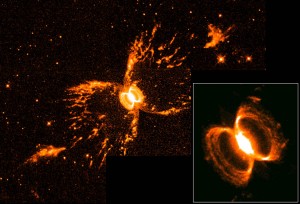Snowflake Spirituality
I was staring out of my window, watching snow flurries and thinking about the essence of being. Philosophies and religions have long grappled with trying to understand and explain the human spirit, the soul, throughout time. I have a distinct and solid understanding, and thought of a useful metaphor for it as I watched the flurries descend. Definitions of "the soul" generally include total individuality and immaterial nature. It is that which makes each of us unique, it manifests as long as we live, growing and changing within us, and then instantly vanishes from view as we die. In most religions, the question then is asked, "Where does it go?" Consider the snowflake. It begins as a small cluster of water molecules up in a cloud at the boundary of vapor and mist. As it hovers in the wind currents, it grows and evolves. The species (chemical formula) determines the basic nature, a flat hexagon. So why is every one different? Because they grow in subtly different mixes of molecules and temperatures. Each becomes an individual. When they grow heavy enough to drop below the cloud line, they are born as falling snowflakes. But they have not finished growing. They continue to sublime and to collect molecules. As with any system, they increase in complexity and purity as they encounter random or systematic changes in environment. Sometimes they merge, often they fracture. Finally they reach the ground. Some settle into clusters, becoming packed into a solid layer, and even all the way to ice. Others hit something warm and melt. In either case, what has become of the individual essence? It's parts get recycled into other forms, compacted or melted, evaporated or metabolized. Eventually, all of the above. But the unique form is gone. Where did the unique shape of this snowflake go? When we die, our spirit, soul, self is gone. It can remain in the memory of others, carried forward by our neighbors or impressions made on the environment. Like a melted snowflake. In what way is the end of snowflake self any different than the end of a human self? Granted, humans are able to ask this question. And human life is naturally rated more highly by humans than the unique individuality of other creatures and things. But besides that?

